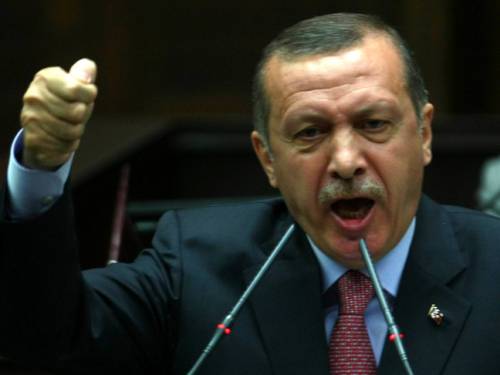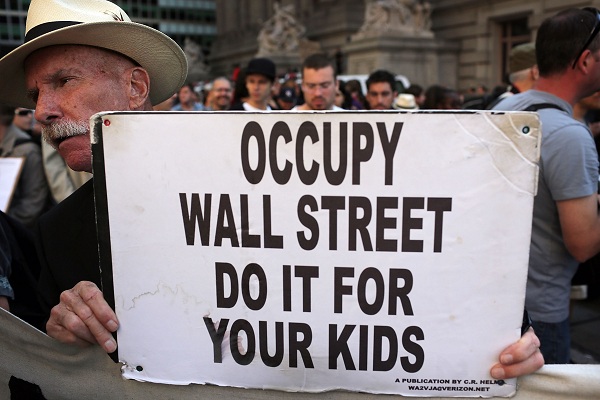MOGADISHU/CAIRO: As two more journalists were killed in Somalia over the weekend, voices both from within and outside of the war-torn African country called for increased security measures to protect the media against further attacks.
On the morning of Saturday, Aug. 11 four unknown men fatally shot Mahad Ahmed Elmi, a manager at the respected Mogadishu-based radio station HornAfrik Radio.
Then later in the day, as the radio station’s founder and chairman, Ali Iman Sharmarke, was returning from Elmi’s funeral, his car was hit by a remotely detonated roadside bomb. The blast killed Sharmarke and injured two other reporters traveling in his car.
Sharmarke, a Somali-Canadian who was educated in the West, had returned to Somalia in 1999 to found HornAfrik Radio, which has since become one of the top independent news sources in Mogadishu.
In an apparently unrelated attack on Friday evening, Abdihakim Omar Jimale, a journalist from Radio Mogadishu, was the victim of an assassination attempt and is still under medical supervision for his injuries.
The crimes are the most recent in what has been a series of attacks against Somali journalists since the end of 2006, when Ethiopian and Somali government troops defeated the Islamic Courts Union and took control of the country.
There have been six journalists murdered and several more attacked since the start of 2007.
No group has yet claimed responsibility for these killings.
However, Ahmed Ibrahim Mahmoud, a senior researcher at the Al Ahram Center for Political and Strategic Studies and an expert on Somalia, speculated that the militant Al-Shebab group might be behind the attacks.
“The Al-Shebab group is probably conducting these attacks, he told Daily News Egypt. “They have been around long before the Islamic Courts [Union] was established and they now operate autonomously. In fact the Islamic Courts has said that it is not responsible for this group’s actions.
He also said that the Al-Shebab group are connected with Al-Qaeda and have been trained in Afghanistan. He said that they tend to adopt tactics that are suggestive of Al-Qaeda’s influence.
The attacks over the weekend motivated widespread condemnations, expressions of outrage, and calls for increased security from media and government agencies both domestically and internationally.
The United Nations Educational, Scientific, and Cultural Organization (Unesco), which is the UN body responsible for the protection of journalists, issued a strong statement on Tuesday condemning the attacks and lauding the work of journalists in Somalia.
“Journalists and media workers provide a service that is essential for any democratic society, a service that becomes all the more vital in societies that are trying to find their way out of strife, said Unesco Director-General, Koïchiro Matsuura.
His comments echoed a statement made on Monday by UN Resident and Humanitarian Coordinator for Somalia, Eric Laroche.
But Laroche also demanded that the Somali government step up its actions to ensure the protection of the media in Somalia. “The Transitional Federal Government is responsible for ending impunity for attacks on journalists by conducting prompt and impartial investigations and preventing any form of harassment of the media, he said.
Laroche’s demands were taken up by numerous other agencies and governments, many of which insisted that the Somali government step up its security procedures.
A spokesman for the African Union Mission in Somalia said that the African Union “condemns these killings in the strongest terms possible and urges whoever is behind them to stop henceforth. We also urge government to investigate these killings and bring to book those behind these acts.
But calls on the government to increase security measures for journalists were met with skepticism domestically, as the weak transitional government has had significant difficulty in controlling the violence that has racked Somalia since the end of the war.
“The security situation is very difficult, said Mahmoud. “It is not easy for the government to protect journalists.
Mohammad Ibrahim, the Somalia coordinator for the International News Safety Institute and a spokesperson at the National Union for Somali Journalist, expressed similar doubts.
“Mogadishu has been in anarchy for 15 years, Ibrahim told Daily News Egypt. “The government is trying, but they are facing lots of resistance. They are doing the best they can to control the security situation for journalists.
Ibrahim also added that, despite the attacks, he felt journalists in Somalia would continue doggedly with their reporting. “Some journalists have become afraid, he said, “but others are not. They are dedicated to their profession and will continue to report the news.
Ibrahim’s agency, the National Union for Somali Journalists, have been calling all week for internal and international authorities to step up protection of journalists.
Their international affiliate, the International Federation of Journalists, has backed these calls, with its General Secretary, Aidan White, calling on “the international community to focus again on the crisis in Somalia. So long as journalists are targeted no-one is safe.
There is currently no United Nations office in Mogadishu, with the Somalia mission based in Nairobi, Kenya.
“The UN is trying to support the government and will continue to work through the UN representative office in Nairobi, Mahil Naser, UN Regional Director for the Middle East North Africa, told Daily News Egypt.
On Saturday night, Somali security forces took two men into custody in response to the killings, but there have been no further arrests since then.



